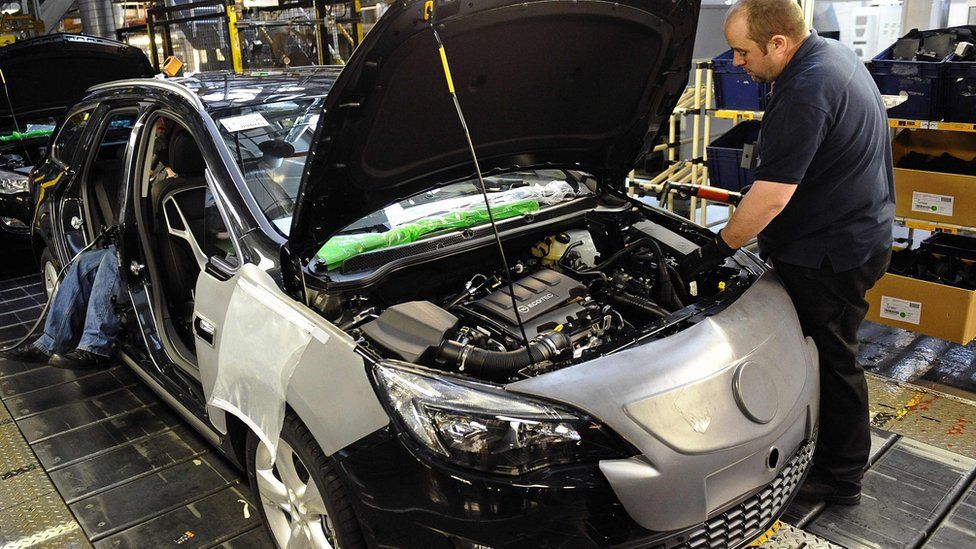EU migrants make up 11% of manufacturing workforce - ONS
- Published

EU migrants make up more than one in 10 manufacturing sector workers in the UK, official figures have shown.
The Office for National Statistics (ONS) also said EU workers from outside the UK tended to work longer hours than the workforce average.
And it said non-UK workers were more likely to be overqualified for the jobs they were doing.
The government is planning to change the way migration is managed after Britain leaves the EU.
It has not yet set out the model it will adopt once EU free movement rules no longer apply, but has pledged that the "brightest and best" will continue to be attracted to the UK.
In a report, the ONS said that last year an estimated 3.4 million workers, amounting to 11% of the entire UK labour market, were foreign nationals.
This number was made up of about 2.2 million EU nationals (7%) and 1.2 million non-EU nationals (4%).
The report also said:
- One in seven workers (14%) in the wholesale and retail trade, hotels and restaurants sector was an international migrant, with 64% of these, more than half a million people, coming from the EU
- Workers from the EU made up 11% of the manufacturing sector
- One in eight (12%) in the UK's financial and business services sector were foreign nationals, including 382,000 from the EU
- About 61% of workers from Bulgaria and Romania worked more than 40 hours a week, compared with about 32% of British workers
- Almost 40% of non-UK workers were in jobs they were deemed to be over-educated for - this figure was 15% for UK nationals
"Today's analysis shows the significant impact international migration has on the UK labour market. It is particularly important to the wholesale and retail, hospitality, and public administration and health sectors, which employ around 1.5 million non-UK nationals," said Anna Bodey of the ONS.
"Migrants from Eastern Europe, Bulgaria and Romania are likely to work more hours and earn lower wages than other workers, partly reflecting their numbers in lower-skilled jobs."
Compared with the national average earnings of £11.30 per hour, workers from a group of 14 EU countries including Germany, Italy and France earned more (£12.59), whereas those from Eastern Europe had the lowest pay at £8.33.
The highest employment rate was 83% among eight central and eastern European countries that joined the EU in 2004, as well as Romania and Bulgaria, while the rate for non-EU nationals was 62%.
The ONS said this was because many non-EU nationals come to the UK to study.
The government has also set a target of reducing annual net migration - 273,000 according to the most recent statistics - to below 100,000.
Alp Mehmet from pressure group Migration Watch UK said: "Business must now focus on recruiting and training from the domestic workforce and wean itself off the cheaper East European option.
"Employers should turn to overseas workers only when they face genuine skills or labour shortages."
- Published9 April 2017
- Published29 March 2017